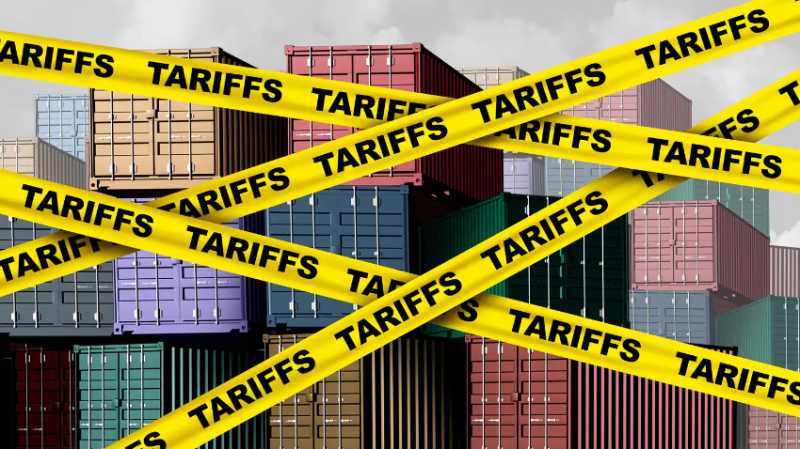- India Sees 9% Drop in Foreign Tourists as Bangladesh Visits Plunge |
- Dhaka Urges Restraint in Pakistan-Afghan War |
- Guterres Urges Action on Safe Migration Pact |
- OpenAI Raises $110B in Amazon-Led Funding |
- Puppet show enchants Children as Boi Mela comes alive on day 2 |
US Tariff Cut Hits Indian Textile Stocks, Boosts Rivals

US Tariff Cut Hits Indian Textile Stocks
Indian textile and apparel stocks dropped sharply on Friday following the United States’ announcement of major tariff cuts on imports from Bangladesh and Pakistan—two of India’s key competitors in the global ready-made garment (RMG) market.
Shares of major Indian companies, including Kitex, Pearl Global, KPR Mill, and Welspun Living, fell between 2% and 7% as investors reacted to concerns over India’s diminishing price competitiveness in the US market.
Notable stock movements:
Pearl Global Industries fell 7.2% to ₹1,380.05
KPR Mill dropped 4.3% to ₹1,092
Gokaldas Exports declined 3.1% to ₹824.50
Arvind Ltd slid 1.8% to ₹310.40
Welspun Living lost 1.9% to ₹123.80
The decline came after the US revised import duties, reducing tariffs on Bangladeshi garments from 35% to 20% and on Pakistani goods from 29% to 19%. Other Asian exporters, including Vietnam, Malaysia, Indonesia, and the Philippines, were also granted lower rates between 19% and 20%.
India, however, remains subject to a 25% import tariff, putting its exporters at a disadvantage.
“This is a body blow for Indian garment exporters,” said a senior analyst at a leading brokerage firm. “With the US being India’s largest export destination, these tariff cuts give Bangladesh and others a clear edge in cost-sensitive segments.”
Bangladesh, the world’s second-largest apparel exporter, is expected to gain further ground in the US market, supported not only by lower tariffs but also by recent trade agreements and policy reforms.
Pakistan, meanwhile, is reportedly enhancing its economic cooperation with the US, including discussions on a new joint initiative in oil exploration—potentially strengthening its trade and diplomatic ties with Washington.
Indian exporters warn that the tariff shift could result in lost market share, especially in labour-intensive product categories where Bangladesh enjoys a substantial cost advantage.
Industry leaders are calling on the Indian government to intensify bilateral trade negotiations to secure parity or preferential treatment in Western markets.
“If India doesn’t respond diplomatically or through trade pacts, the textile sector could face serious challenges over the next 12 to 18 months,” said a Mumbai-based exporter.
With the next US-India Trade and Investment Forum scheduled later this year, attention now turns to whether New Delhi can negotiate a rollback of the tariffs or secure exemptions to counterbalance the growing competitive gap.

